Alternative to Hair Transplant
The unique Clinique M approach
At Clinique M, we offer cutting-edge medical expertise with exclusive bioregenerative treatments, supervised by hair restoration specialist Dr. Nyan Narine. Using innovations like next-generation exosomes and biomimetic peptides, we help our patients stop hair loss, stimulate regrowth, and regenerate the scalp—without surgery or pain. Each protocol is personalized to your hair loss type and goals, achieving visible and lasting results.

Summary
- TWO Non-Surgical Alternatives
- Non-surgical solutions
- Case studies
- Steps of exosome processing
- Non-surgical treatments
- Non-Surgical Treatments vs. Hair Transplant at MRockland
- A renowned hair loss specialist
- Why Choose MRockland?
- Learn about the different causes related to hair loss.
- Hair Loss Prevention
Innovative methods
TWO Non-Surgical Alternatives :
We support men and women by offering innovative methods to delay or replace the need for future hair transplants. Our treatments include:
Non-Human Exosomes
Used to stimulate hair regeneration, these particles derived from stem cells and salmon promote hair regrowth and improve scalp health.
PRP (Platelet-Rich Plasma)
This technique uses your own platelets to encourage hair growth.
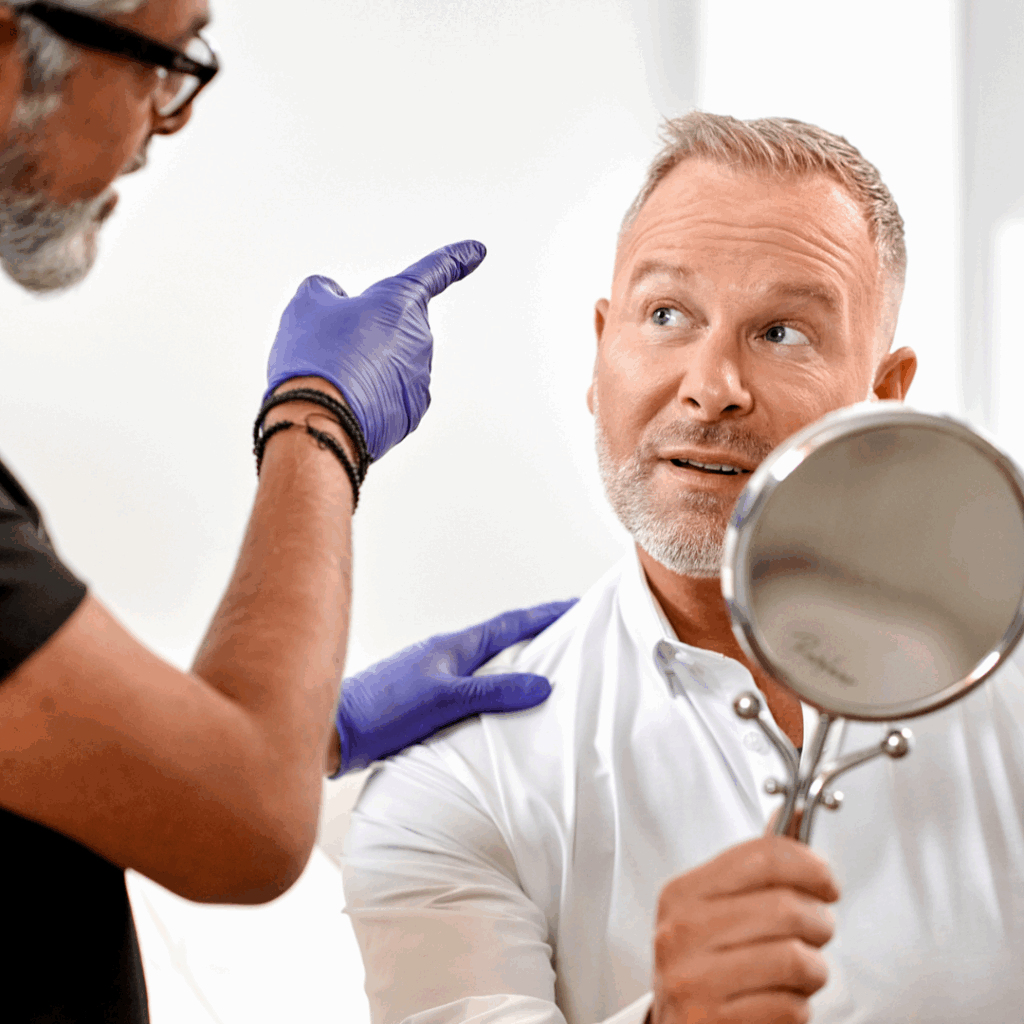
Explore Our Non-Surgical Solutions for Hair Loss.
Hair Loss: A Common Challenge
Hair loss, or alopecia, affects both men and women of all ages. It can be caused by various factors, including genetics, hormones, stress, or certain illnesses. Androgenetic alopecia is the most common form, but other factors like hormonal imbalances, intense stress, or nutritional deficiencies can also lead to temporary hair loss.
Don’t let hair loss affect your self-esteem.
Case Study 1:
After a hair transplant that failed to produce satisfactory results, Dr. Narine implemented a personalized protocol based on exosomes and bioactive peptides. The result: natural regrowth and restored density.
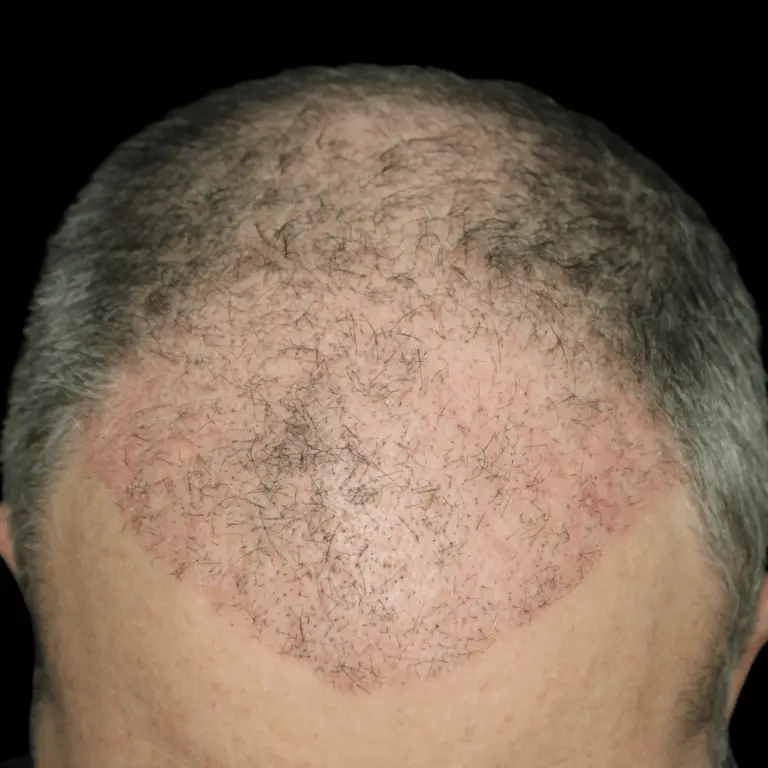
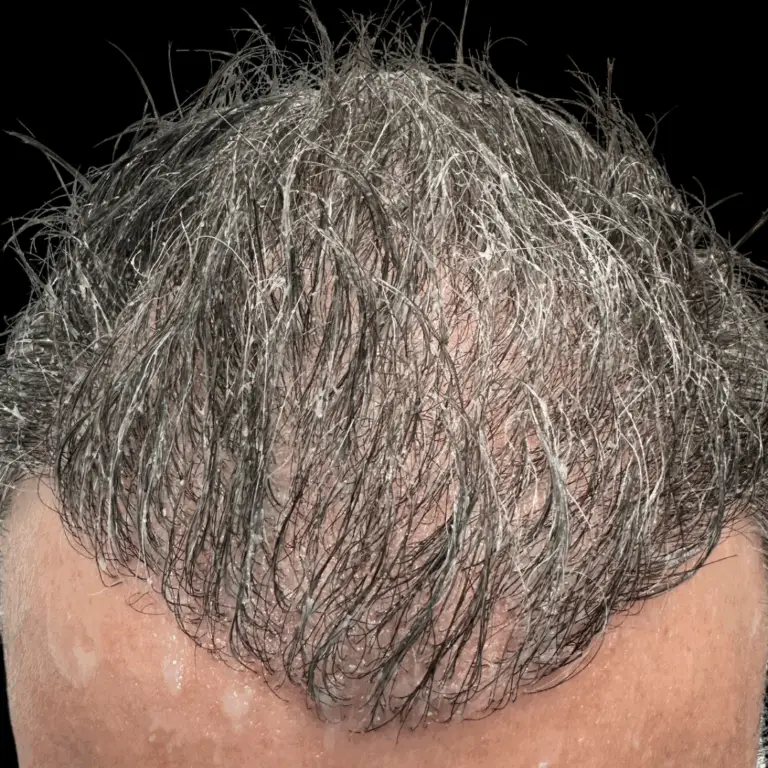
Case study 2
Case of androgenetic alopecia. Dr. Narine designed a tailor-made treatment with exosomes to stimulate regrowth and avoid the need for a transplant.
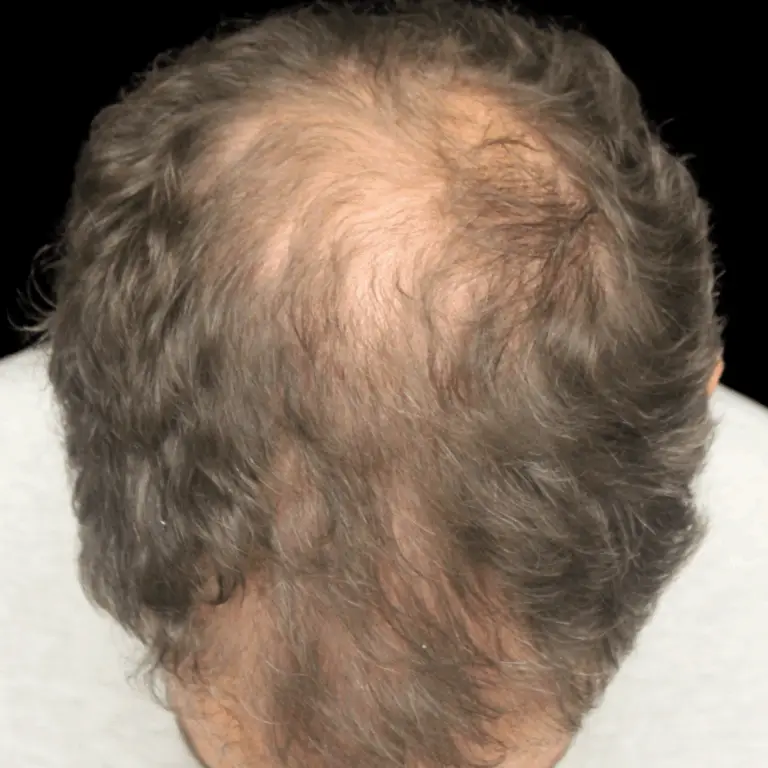
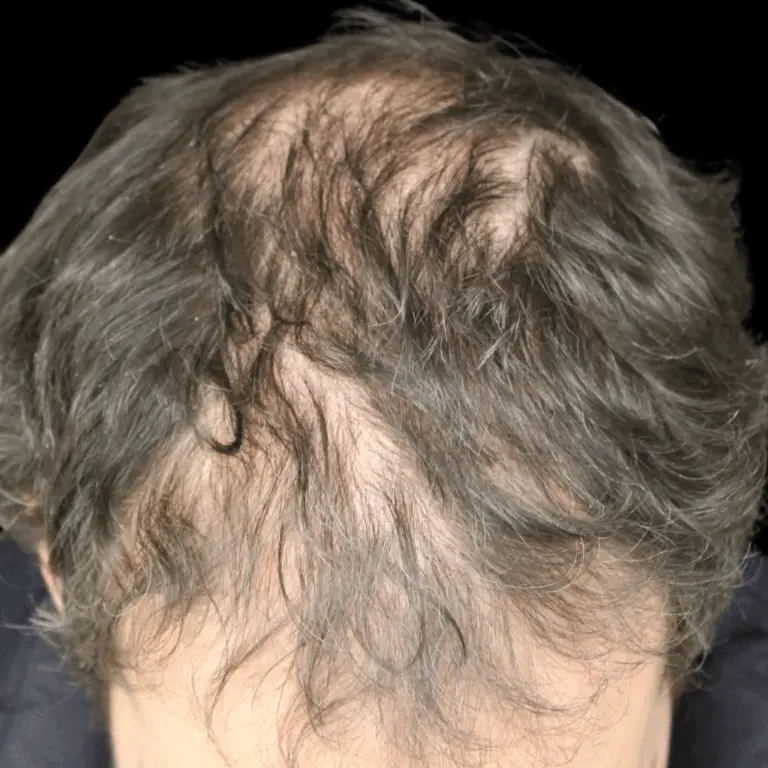
Les 4 étapes du traitement d’exosomes pour les cheveux
Les exosomes représentent une avancée révolutionnaire en médecine régénérative capillaire. Véritables messagers cellulaires, ils transportent des protéines et des facteurs de croissance qui stimulent la régénération des follicules, favorisent la repousse et améliorent la qualité du cuir chevelu. Contrairement aux approches traditionnelles, ce traitement non chirurgical agit en profondeur pour redonner densité, vitalité et force aux cheveux, tout en freinant la chute.
Consultation + 1e traitement d’Exosomes Cheveux
Rencontrez le Dr Nyan Narine pour une évaluation personnalisée de votre cuir chevelu. Selon vos besoins, il recommande un protocole bio-régénératif pour stimuler la repousse et renforcer vos cheveux.
Témoignage + 2eme traitement d’Exosomes Cheveux
Un patient atteint d’alopécie partage son expérience après son premier traitement aux exosomes. Suite à l’évaluation du Dr Narine, un protocole personnalisé a été mis en place pour stimuler la repousse et améliorer la densité capillaire.
Évolution 3eme traitement d’Exosomes Cheveux
Lors de ce 3e traitement, les premiers résultats sont déjà visibles : les cheveux gagnent en épaisseur et de nouveaux follicules commencent à repousser. Le protocole personnalisé du Dr Narine démontre son efficacité étape par étape.
Évolution 4eme traitement d’Exosomes Cheveux
Notre patient termine sa cure de 4 séances aux exosomes capillaires avec le Dr Narine. Ce protocole non chirurgical favorise la repousse et la densité des cheveux. Un suivi à 2 mois permettra d’évaluer les résultats finaux sur la zone traitée.
Non-surgical treatments (exosome & PRP)
Dr Narine explains the difference between alternatives available at MRockland for hair loss and hair transplant.
Non-Surgical Treatments vs. Hair Transplant at MRockland
Non-Surgical Treatments
Method
Use of injections to stimulate hair regeneration.
Invasiveness
Non-invasive, no surgery.
Pain and Discomfort
Slight discomfort from injections, minimal pain.
Recovery Time
Quick recovery, no downtime required.
Expected Results
Gradual improvement in hair density and quality over several months.
Duration of Results
Temporary results, requires regular sessions to maintain effect.
Possible Side Effects
Redness, swelling, slight temporary sensitivity.
Cost
Moderate, requires several sessions ($500 to $4000 per session).
Frequency of sessions
Several sessions required
Ideal candidates
People with moderate hair loss who wish to avoid surgery.
Hair Transplant
Method
Transplantation of healthy hair follicles from a donor area to a balding area.
Invasiveness
Surgical, involves incisions and grafting follicles.
Pain and Discomfort
Pain post-procedure with incisions and grafts.
Recovery Time
A few days to a week of recovery needed.
Expected Results
Permanent hair with visible results after 6 to 12 months.
Duration of Results
Permanent results, but occasional touch-ups may be needed.
Possible Side Effects
Scarring, pain, risk of infection, temporary swelling.
Cost
High cost, ranging from $5000 to $15000, depending on the technique used.
Frequency of sessions
A single intervention, sometimes some retouches.
Ideal candidates
People with advanced baldness or large areas of thinning.
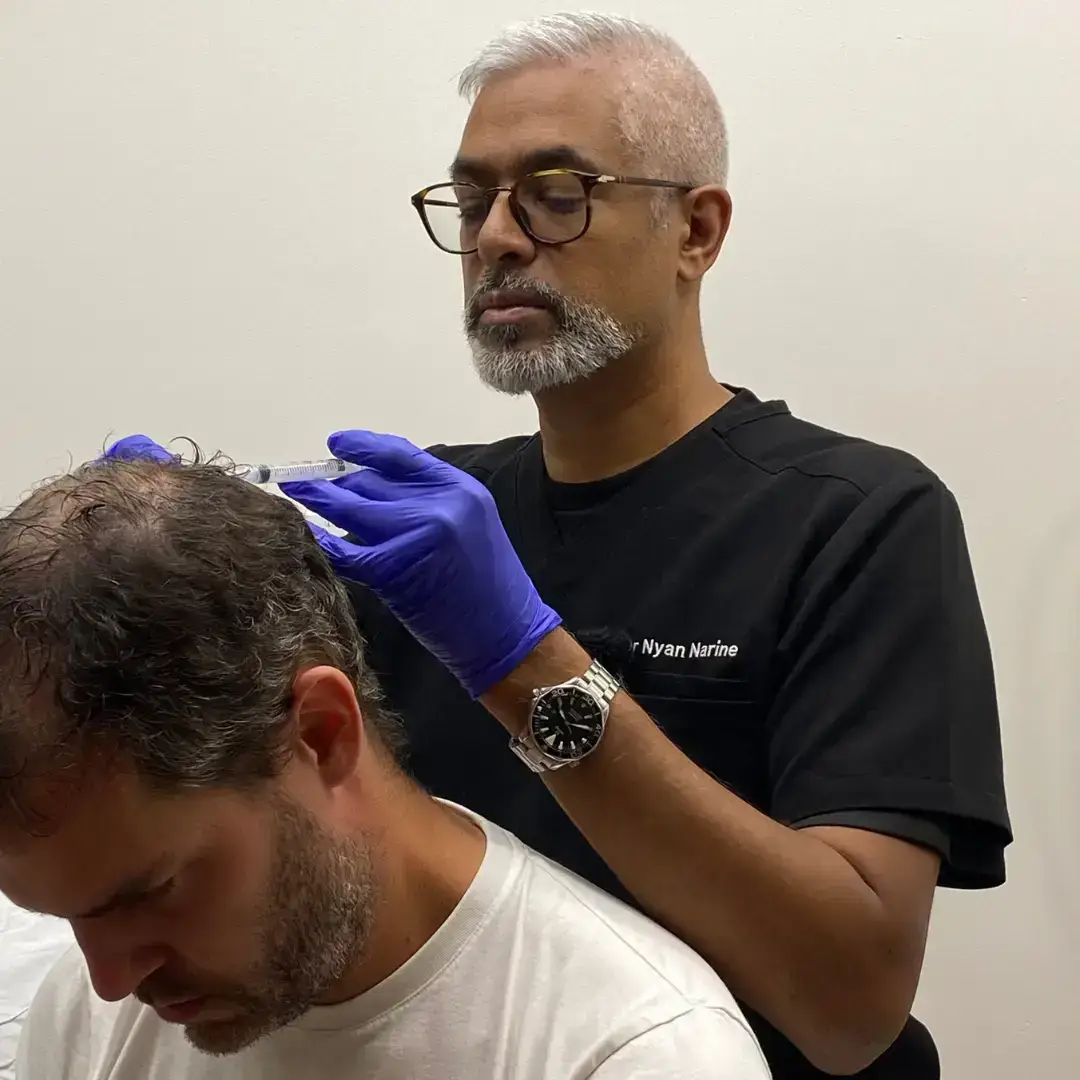
A renowned hair loss specialist - Dr. Nyan Narine
With our medical director, Dr. Nyan Narine, a pioneer in bio-regenerative medicine and an expert in aesthetics, you benefit from a personalized approach, ensuring optimal results. His impressive academic background includes:
His prestigious academic background includes:
- University of Toronto – Microbiology and Immunology
- Western University – Doctor of Medicine
- McGill University – Specialization in Internal Medicine
Thanks to his approach based on the latest medical and scientific advances, he develops personalized treatment protocols to slow hair loss, stimulate regrowth and optimize long-term hair health.
Why Choose MRockland?
With our holistic approach, it is possible to minimize hair loss and promote healthy, strong hair.
- Understand the specific causes of your hair loss
- Perform an accurate diagnosis using cutting-edge technologies
- Develop a custom treatment plan tailored to your needs, relying on the latest scientific advances
- Provide regular follow-up to optimize your results
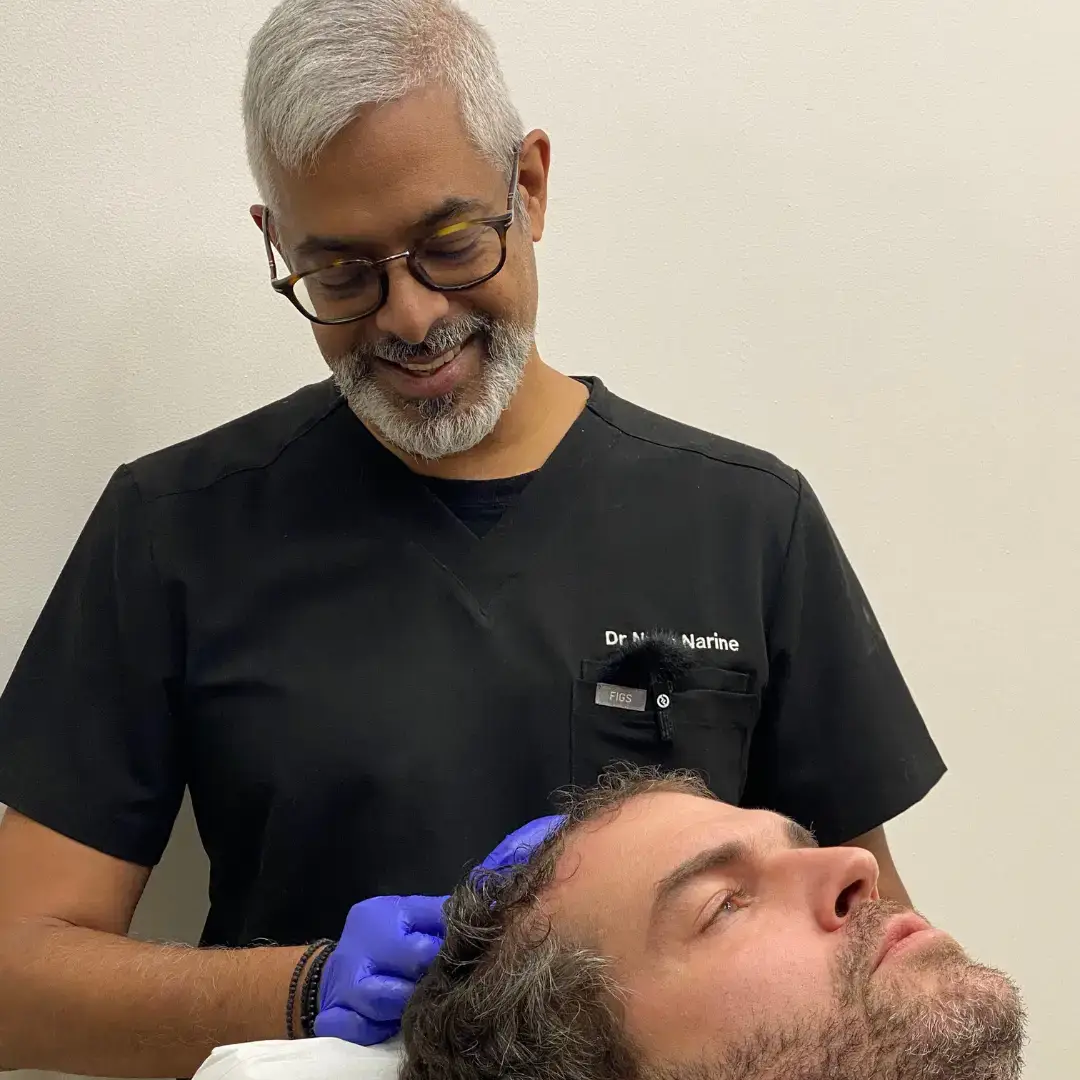
Learn about the different causes related to hair loss.
Hair loss can be caused by various factors, and it can manifest in different ways depending on the underlying cause. Here are some of the most common causes:
Genetics
Hereditary baldness, or androgenetic alopecia, is the most common cause of hair loss. It affects both men and women (up to 40%). It is usually due to a genetic sensitivity to androgen hormones, particularly DHT.
Hormonal Changes
Hormonal imbalances, such as those occurring during pregnancy, childbirth, menopause, high cortisol levels, or thyroid disorders, can cause temporary or permanent hair loss.
Stress and Trauma
Intense physical or emotional stress can cause temporary hair loss called telogen effluvium. Traumatic events, major surgeries, or severe illnesses can also trigger this type of hair loss.
Nutritional Deficiencies
An imbalanced diet or deficiencies in vitamins and minerals (such as iron, zinc, vitamins C, D, Biotin, and B12) can contribute to hair loss.
Autoimmune Diseases
In conditions such as alopecia areata, the immune system attacks the hair follicles, leading to patchy hair loss.
Medications and Treatments
Certain medications, including those used to treat cancer (chemotherapy), depression, heart disease, and hypertension, can cause hair loss as a side effect.
Scalp Infections
Fungal infections like ringworm can lead to hair loss.
Chemical Products and Hairstyles
Excessive use of harsh chemicals, like hair dyes and perms, as well as hairstyles that pull on the hair (such as tight braids or extensions), can damage hair follicles and cause hair loss.
Chronic Illnesses
Some chronic inflammatory diseases, such as diabetes and lupus, can affect hair health and lead to hair loss.
Age
As we age, it’s natural for hair density to decrease and for hair to become thinner and more fragile.
Hair Loss Prevention
Prevention is crucial to maintaining healthy hair. Here are some effective strategies:
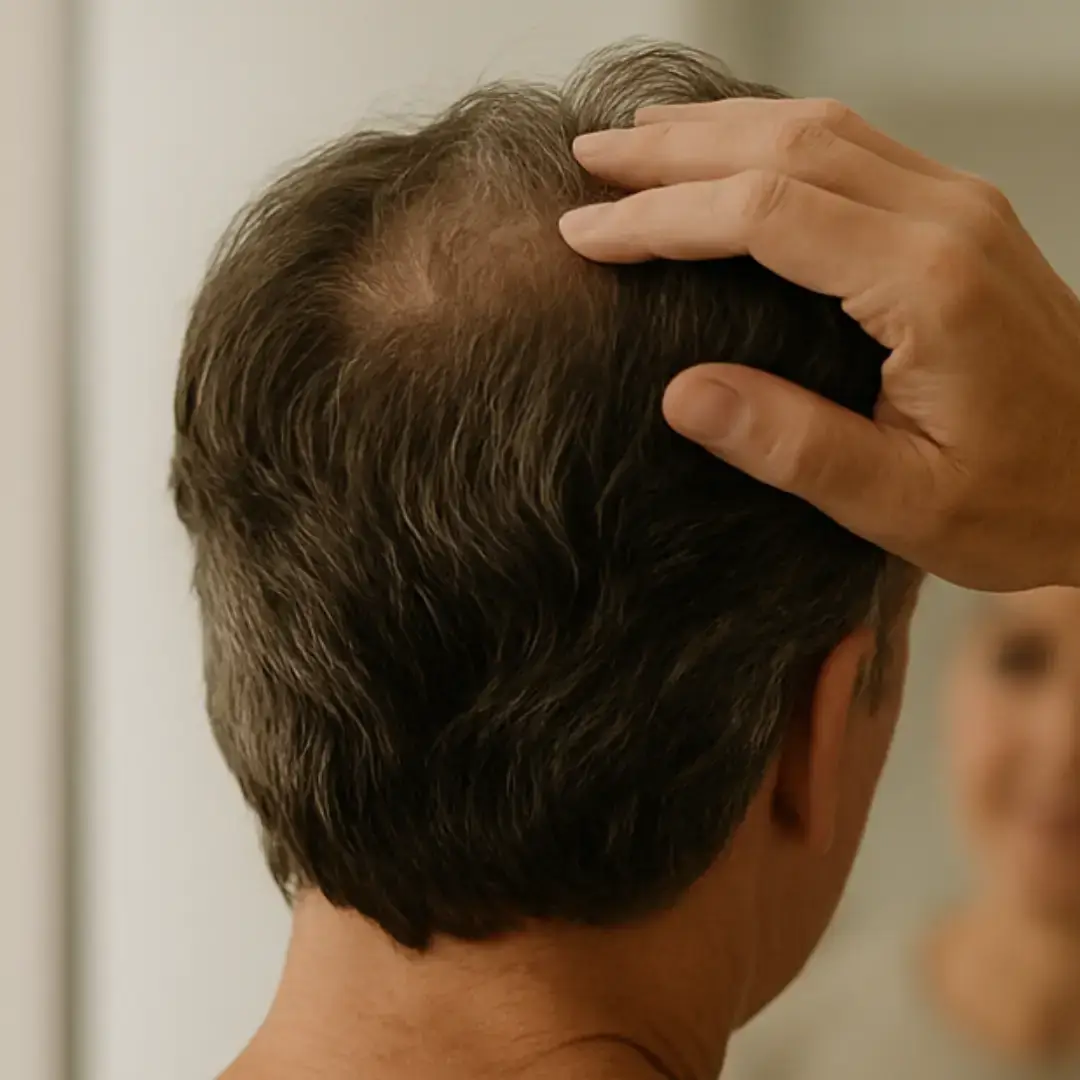
Strategies
Free consultation
Adopt a Healthy Lifestyle
- A balanced diet rich in protein, vitamins, and minerals
- Stress management through relaxation techniques
- Avoid aggressive hair practices
Scalp Care
- Regular massages to stimulate blood circulation
- Use of products suited to your hair type
Regular Check-ups
- Visits to the dermatologist for professional follow-up
- Early detection of hair issues is crucial
Approche Clinique M
Remember that prevention and early detection are key in the fight against hair loss. If you notice abnormal hair loss or have concerns about your scalp health, don’t wait!
Contact our medical director, Dr. Nyan Narine, today for a personalized consultation.
Take control of your hair health now. With proper care, tailored follow-up, and the expertise of our team, you can maintain the long-term health and beauty of your hair.
Your transformation starts here
Do not hesitate to contact us for a personalized consultation and to begin your transformation.
* Results may vary from person to person. We present, to the best of our knowledge, an average of the results obtained. No guarantee is offered. Our goal is to properly evaluate your profile so that you can make an informed decision.
Get a free consultation*
Consultation without obligation
Thousands of satisfied clients have trusted our medical-aesthetic clinic for over 15 years.
Thousands of satisfied customers




A trusted medical-aesthetic clinic for over 15 years.
⭐️⭐️⭐️⭐️⭐️ — 4.9/5 on Google
Our commitment
Response within 24 hours
Personalized treatment
Contact Us
Phone
(438) 601-4718
Our Address
233 Av. Dunbar, Mont-Royal, QC H3P 2H4, Canada

